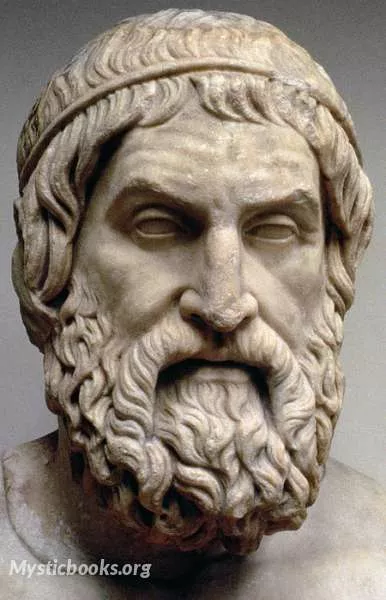
Timeline
Title
Country/Nationality
Sophocles
Sophocles, a towering figure in ancient Greek literature, was a renowned tragedian whose plays continue to captivate audiences today. Born around 497/496 BC in Athens, he lived a long and illustrious life, contributing significantly to the development of drama.
Life and Career
Sophocles hailed from a wealthy family and received a comprehensive education. His early triumph in 468 BC, defeating the renowned Aeschylus, marked the beginning of a distinguished career. He participated in numerous dramatic competitions, winning numerous accolades and establishing himself as a leading playwright of his time.
Dramatic Innovations
Sophocles introduced several innovative elements to the art of tragedy. Notably, he is credited with adding a third actor to the stage, which allowed for more complex character development and plot intricacies. He also delved deeper into psychological exploration of his characters, surpassing the work of his predecessors.
Theban Plays
Some of Sophocles' most famous works are the Theban plays, which center around the tragic fate of the House of Oedipus. These plays, including "Oedipus Rex," "Oedipus at Colonus," and "Antigone," delve into themes of fate, free will, and the consequences of human actions.
Other Notable Works
In addition to the Theban plays, Sophocles wrote numerous other tragedies, including "Ajax," "Electra," "Philoctetes," and "Women of Trachis." These plays explore various themes, such as heroism, love, loss, and the human condition.
Legacy
Sophocles' impact on the development of drama is undeniable. His innovative techniques, profound characterizations, and timeless themes continue to inspire playwrights and audiences alike. His works remain relevant today, offering insights into the human experience and the enduring power of tragedy.
Books by Sophocles
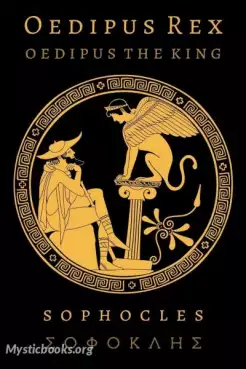
Oedipus Rex
Oedipus Rex, also known by its Greek title, Oedipus Tyrannus or Oedipus the King, is an Athenian tragedy by Sophocles that was first performed around 429 BC. Originally, to the ancient Greeks, the title was simply Oedipus (Οἰδίπους), as it is referre...

Oedipus at Colonus
Oedipus at Colonus is one of the three Theban plays of the Athenian tragedian Sophocles. It was written shortly before Sophocles's death in 406 BC and produced by his grandson (also called Sophocles) at the Festival of Dionysus in 401 BC. In the tim...
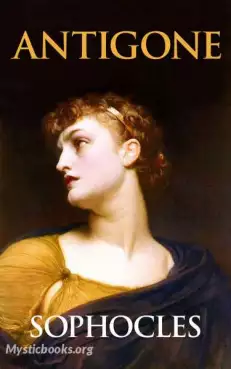
Antigone
Antigone is a tragedy by Sophocles written in or before 441 BC. Of the three Theban plays Antigone is the third in order of the events depicted in the plays, but it is the first that was written. The play expands on the Theban legend that predates it...
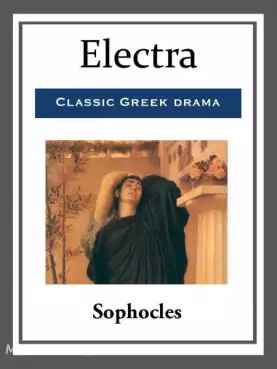
Electra
Electra, Elektra, or The Electra is a Greek tragedy by Sophocles. Its date is not known, but various stylistic similarities with the Philoctetes (409 BC) and the Oedipus at Colonus (401 BC) lead scholars to suppose that it was written towards the end...
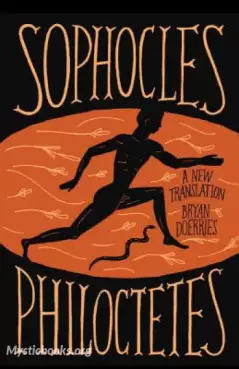
Philoctetes
Philoctetes or Philocthetes, according to Greek mythology, was the son of Poeas, king of Meliboea in Thessaly, and Demonassa or Methone. He was a Greek hero, famed as an archer, and a participant in the Trojan War.
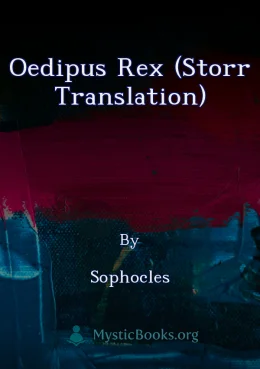
Oedipus Rex (Storr Translation)
Oedipus the King (often known by the Latin title Oedipus Rex) is an Athenian tragedy by Sophocles that was first performed c. 429 BC. It was the second of Sophocles's three Theban plays to be produced, but it comes first in the internal chronology, f...

Oedipus at Colonus (Storr Translation)
Sophocles' "Oedipus at Colonus" picks up the story of Oedipus after his tragic fall from grace. Blinded and banished from Thebes, he wanders the land, accompanied by his daughters Antigone and Ismene. He arrives at Colonus, a sacred grove near Athen...

Electra (Storr Translation)
Sophocles' Electra is a classic Greek tragedy that explores themes of revenge, family, and justice. The play centers on Electra, the daughter of Agamemnon, who is consumed by grief and rage over the murder of her father by her mother, Clytemnestra, a...

Antigone (Plumptre Translation)
Sophocles' "Antigone" is a timeless Greek tragedy that explores the conflict between individual conscience and societal laws. Antigone, the daughter of Oedipus, defies the edict of King Creon, choosing to honor her brother's burial despite the law fo...

Oedipus Rex (Murray Translation)
Oedipus Rex, often translated as Oedipus the King, is a classic Greek tragedy by Sophocles that explores the themes of fate, free will, and the consequences of hubris. The play follows Oedipus, the king of Thebes, as he investigates a plague afflicti...

Oedipus at Colonus (Jebb Translation)
Sophocles' "Oedipus at Colonus" is a powerful and moving play that delves into the themes of fate, redemption, and the human condition. The play depicts the final chapter in the life of Oedipus, the tragic king of Thebes, who is now blind and exiled...

Siete Tragedias de Sófocles
This volume presents the seven surviving tragedies of Sophocles, one of the most prominent figures in Greek theater. Translated from the original Greek into Spanish by José Alemany Bolufer, the collection includes iconic plays like "Oedipus Rex", "An...

Ajax (Campbell Translation)
Sophocles' *Ajax* delves into the psychological turmoil of the titular hero after the Trojan War. Following the humiliation of losing Achilles' armor to Odysseus, Ajax descends into madness fueled by anger and pride. His descent into mental instabili...

Trachiniai (Campbell Translation)
Sophocles' "Women of Trachis" is a powerful exploration of love, jealousy, and the destructive forces of fate. The play centers on Deianeira, the wife of the legendary hero Heracles, who is consumed by anxieties about her husband's absence and the po...

Philoctetes (Campbell Translation)
Sophocles' "Philoctetes" is a classic Greek tragedy that explores themes of suffering, betrayal, and redemption. The play tells the story of Philoctetes, a skilled archer who is abandoned on a deserted island due to a foul-smelling wound. When the Gr...
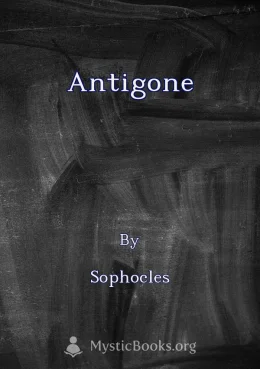
Antigone
Antigone is a play by Sophocles that tells the story of a young woman who defies the orders of her uncle, King Creon, and buries her brother, Polyneices, who was killed in battle against Creon's other nephew, Eteocles. Creon has forbidden the burial...